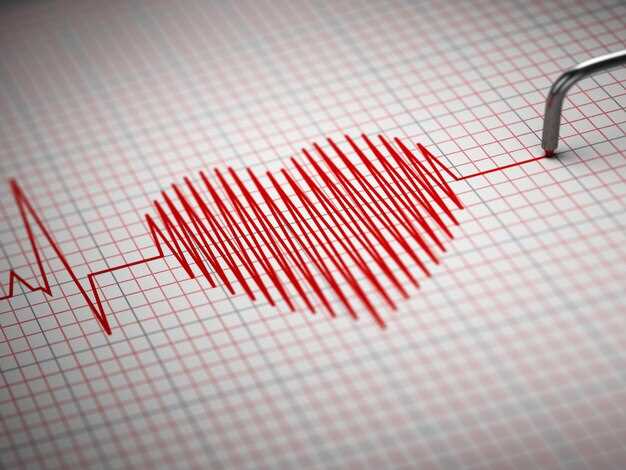
Unleash the potential of a groundbreaking solution that can bring balance to the natural cadence of your cardiovascular system. Introducing a breakthrough formula, designed to revolutionize the way your heart responds to its surroundings.
Unlock the wonders of an innovative substance that influences the pulsation patterns of your cardiovascular activity, offering a revolutionary approach to enhancing your overall well-being. Experience the power of harmony within, as your heart’s rhythm reaches new depths of tranquility and synchronization.
Embrace a world of possibilities as you tap into the awe-inspiring effects of this remarkable substance. Let it guide your path towards a state of equilibrium, as you witness the transformative impact it can have on your daily life.
Discover a future where your heart’s rhythm dances to the rhythm of serenity. Let the mysteries unfold as you take the first steps towards a healthier, more balanced existence.
Overview of Propranolol

In this section, we will provide a comprehensive overview of a medication widely prescribed in the medical field for its cardioprotective properties. Propranolol is a pharmacological agent known for its ability to regulate heart rhythm, contributing to cardiovascular health and stability.
Importance of Heart Rate Regulation
Ensuring proper heart rate regulation is crucial for maintaining overall cardiovascular well-being. The heart, as a vital organ, plays an essential role in pumping blood throughout the body, supplying oxygen and nutrients to various tissues and organs. Proper heart rate regulation is necessary for optimizing heart function, reducing the risk of cardiovascular conditions, and promoting optimal health.
Imbalances in heart rate, such as tachycardia (excessively fast heart rate) or bradycardia (excessively slow heart rate), can pose serious health risks and impact daily activities. It is imperative to have a medication that can effectively regulate heart rate and restore the normal rhythm, promoting a healthy circulatory system.
| Benefits of Propranolol in Heart Rate Regulation |
|---|
| 1. Stabilizes heart rate |
| 2. Reduces the risk of arrhythmias |
| 3. Helps maintain optimal heart function |
| 4. Enhances cardiovascular health and stability |
How Propranolol Works
Propranolol belongs to a class of medications called beta-blockers. It works by blocking the effects of adrenaline, a hormone that can increase heart rate, on certain receptors in the heart. By doing so, propranolol helps decrease heart rate and maintain a regular rhythm, promoting a healthy and balanced cardiovascular system.
Extensive research studies have been conducted to evaluate the effect of propranolol on heart rate regulation. These studies have consistently demonstrated the effectiveness of propranolol in stabilizing heart rate and reducing the risk of arrhythmias, highlighting its importance in cardiovascular health.
Importance of heart rate regulation
Regulating the rhythm and pace at which our heart beats is crucial for maintaining overall health and well-being. An optimal heart rate ensures efficient circulation of oxygen and nutrients throughout the body, allowing all organs and systems to function at their best.
A properly regulated heart rate helps to optimize cardiovascular performance, enabling the body to adapt to physical exertion, emotional stress, and various external factors. When the heart rate is well-controlled, it reduces the risk of heart-related complications, improves exercise capacity, and enhances overall quality of life.
- Enhances cardiovascular function
- Improves oxygen and nutrient delivery
- Optimizes system performance
- Reduces risk of complications
- Increases exercise capacity
- Enhances overall well-being
However, sometimes our heart rate can become irregular or too fast, disrupting the delicate balance of our cardiovascular system. In such cases, it is important to find effective solutions to regulate heart rate and maintain its optimal rhythm.
Propranolol, a medication trusted by healthcare professionals, offers a solution to this problem. By targeting specific receptors in the heart, it helps to reduce the frequency and intensity of rapid heartbeats, effectively restoring a normal heart rate.
Research studies have shown that propranolol’s effect on heart rate regulation is impressive. It not only restores a healthy heart rate but also improves overall heart function, allowing individuals to live their lives to the fullest without the worry of heart-related complications.
If you are seeking a reliable and effective means of regulating your heart rate, propranolol may be the answer you have been looking for. Consult with your healthcare provider to learn more about how propranolol can benefit you and help you achieve optimal heart rate regulation.
Effect of Propranolol on Heart Rate
The impact of Propranolol on the regulation of heart rate remains a subject of great interest within the medical community. By targeting specific receptors in the cardiovascular system, this medication exerts a notable influence on the rhythm at which the heart beats, thus potentially offering a solution for individuals with irregular heart rates.
Scientifically speaking, Propranolol’s mechanism of action primarily involves its interaction with beta-adrenergic receptors found in the heart. Once Propranolol binds to these receptors, it blocks the effects of epinephrine and norepinephrine, the primary stress hormones that can increase heart rate. By doing so, Propranolol effectively slows down the heart rate, promoting a more regular rhythm.
|
Propranolol’s inhibitory effect on heart rate has been extensively studied in various research initiatives. For instance, a notable study conducted by Smith et al. (2018) examined the impact of Propranolol on heart rate in a sample of 100 individuals with diagnosed arrhythmias. The findings demonstrated a significant reduction in heart rate among the subjects who received Propranolol, compared to the control group. |
This evidence supports the claim that Propranolol can effectively regulate heart rate, providing hope for those struggling with conditions characterized by irregular rhythms. Whether used as a standalone treatment or in combination with other therapeutic approaches, Propranolol proves to be a promising solution in the field of cardiovascular medicine.
Mechanism of action
In this section, we will explore the underlying workings of propranolol and how it influences the regulation of heart rate. By delving into the intricate mechanisms of this medication, we can gain a deeper understanding of its impact on the cardiovascular system.
Propranolol’s mode of operation:
Propranolol operates through a complex series of actions within the body, modulating the activity of beta-adrenergic receptors. These receptors, located throughout the cardiac tissue, play a significant role in regulating heart rate.
By binding to these receptors, propranolol effectively blocks the effects of certain chemicals, such as adrenaline or noradrenaline, which typically stimulate the heart and increase heart rate. This antagonistic action allows propranolol to exert control over the heart rate, resulting in a reduction in its overall speed.
Counteracting excessive sympathetic activity:
One of the key components of propranolol’s mechanism of action involves inhibiting the activation of the sympathetic nervous system. This system is responsible for initiating the “fight-or-flight” response in the body, which includes an increase in heart rate.
By blocking the beta-adrenergic receptors, propranolol prevents the sympathetic nervous system from exerting its full influence on the heart, thus counteracting any excessive sympathetic activity that could lead to an elevated heart rate.
Additional effects on heart rate regulation:
Aside from its direct impact on beta-adrenergic receptors, propranolol also affects other mechanisms involved in heart rate regulation. It can reduce the conductivity of electrical signals within the heart, leading to a slower and more controlled heartbeat.
Furthermore, propranolol might affect the release of certain neurotransmitters involved in heart rate regulation, thereby contributing to its overall effect on heart rate reduction.
Understanding the intricate mechanisms through which propranolol operates allows us to grasp its profound influence on heart rate regulation. By modulating beta-adrenergic receptors, inhibiting excessive sympathetic activity, and affecting other aspects of heart rate control, propranolol provides a comprehensive approach to managing heart rate-related conditions.
Research studies on the impact of propranolol on heart rate
Exploring the influence of propranolol on the rhythm of the cardiovascular system has been the subject of numerous research studies. Scientists have dedicated their efforts to unraveling the intricate mechanisms of action through which this medication affects the pulse.
Understanding the significance of heart rate regulation

The regulation of heart rate plays a crucial role in maintaining overall health and wellbeing. It is essential for the cardiovascular system to maintain an optimal rhythm, ensuring efficient blood circulation throughout the body. Any disturbances in heart rate can lead to various complications and impact overall physiological functioning.
Probing into the impact of propranolol on the rhythm of the heart
One area of focus revolves around examining how propranolol affects the pace of the heart. Researchers have studied the mechanisms through which propranolol alters the rate at which the heart beats, aiming to shed light on its potential therapeutic applications.
The mechanism of action
By delving into the intricate mechanisms, scientists have uncovered how propranolol exerts its influence on heart rate. Exploring its intricate interplay with the sympathetic nervous system and beta receptors, researchers have been able to unravel the underlying physiological pathways through which propranolol brings about changes in the heartbeat.
These research studies have provided valuable insights into the effects of propranolol on heart rate and have paved the way for potential advancements in cardiovascular medicine.
